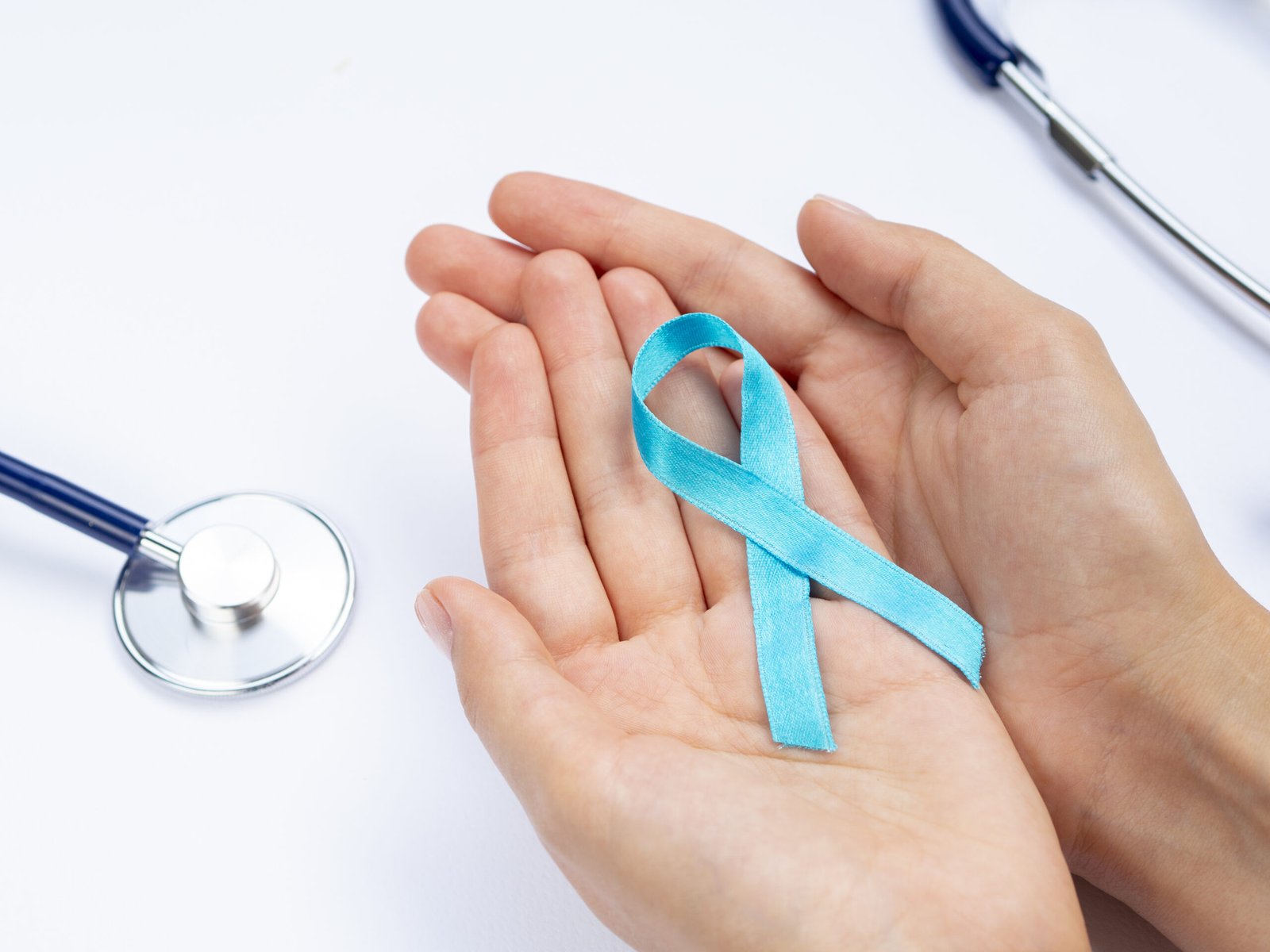Depression: A Comprehensive Exploration of a Global Health Challenge
Table of Contents
Introduction
Depression, often described as a silent epidemic, transcends geographical borders and societal divides, affecting individuals of all ages, races, and backgrounds worldwide. It is a complex mental health disorder characterized by persistent feelings of sadness, hopelessness, and disinterest in once-pleasurable activities. Despite its prevalence and impact, depression remains widely misunderstood and stigmatized, leading to significant challenges in diagnosis, treatment, and support.
In this comprehensive exploration, we delve into the depths of depression, unraveling its intricate facets to shed light on its definition, various forms, historical context, incidence rates, demographic trends, symptoms, available treatments, prevention strategies, and conclude with a reflection on addressing this critical global health issue. By understanding the complexities of depression, we can strive to reduce stigma, increase awareness, and foster a more empathetic and supportive environment for those affected by this pervasive mental health condition.
Concept of Depression
Depression is a multifaceted and complex mental health disorder that goes beyond mere feelings of sadness or unhappiness. It affects how individuals think, feel, and behave, often leading to a range of emotional and physical problems. While everyone may feel sad or down at times, depression is characterized by the persistence and severity of these feelings, often lasting for weeks, months, or even years if left untreated.
One of the key aspects of depression is its impact on daily life. Individuals experiencing depression may struggle to carry out normal activities, such as going to work or school, maintaining relationships, or even taking care of themselves. This can lead to feelings of guilt, worthlessness, or hopelessness, further exacerbating the condition.
Depression is also known to be influenced by a variety of factors, including genetic, biological, environmental, and psychological factors. While the exact cause of depression is not fully understood, it is believed to result from a combination of these factors. For example, a family history of depression, certain medical conditions, stressful life events, or imbalances in brain chemicals (neurotransmitters) such as serotonin and norepinephrine can all contribute to the development of depression.
It is important to note that depression is not a sign of weakness or a character flaw. It is a legitimate medical condition that requires proper diagnosis and treatment. Without intervention, depression can have serious consequences, leading to a higher risk of suicide, substance abuse, and other health problems.
Understanding the concept of depression is crucial in dispelling myths and misconceptions surrounding the disorder. By recognizing depression as a legitimate medical condition with complex underlying causes, we can promote empathy, support, and effective treatment for those affected.
Variations of Depression
Depression is not a one-size-fits-all disorder; it can manifest in various forms, each with its own set of symptoms and characteristics. Understanding these variations is crucial for accurate diagnosis and effective treatment. Some of the most common forms of depression include:
- Major Depressive Disorder (MDD): Also known as clinical depression, MDD is the most common form of depression. It is characterized by persistent feelings of sadness, hopelessness, and a loss of interest in activities that were once enjoyable. Other symptoms may include changes in appetite or weight, sleep disturbances, fatigue, feelings of worthlessness, and difficulty concentrating or making decisions. MDD can significantly impact daily functioning and quality of life.
- Persistent Depressive Disorder (PDD): PDD, formerly known as dysthymia, is a chronic form of depression that lasts for two years or more. While the symptoms of PDD may be less severe than those of MDD, they are more persistent. Individuals with PDD may experience low mood, fatigue, appetite or sleep changes, and feelings of inadequacy.
- Bipolar Disorder: Bipolar disorder is characterized by extreme mood swings that include episodes of mania or hypomania (elevated mood and increased energy) and episodes of depression. During manic or hypomanic episodes, individuals may feel euphoric, have increased energy, and engage in risky behaviors. These episodes are followed by depressive episodes, which can be severe and debilitating.
- Seasonal Affective Disorder (SAD): SAD is a type of depression that occurs at a specific time of year, usually during the winter months when there is less natural sunlight. Symptoms of SAD are similar to those of MDD but tend to occur seasonally and improve with the arrival of spring or summer.
- Postpartum Depression: Postpartum depression is a type of depression that occurs after childbirth. It is believed to be influenced by hormonal changes, sleep deprivation, and the physical and emotional demands of caring for a newborn. Symptoms may include sadness, anxiety, irritability, and difficulty bonding with the baby.
- Psychotic Depression: Psychotic depression is a severe form of depression that is accompanied by psychotic symptoms, such as hallucinations or delusions. These symptoms may involve feelings of guilt, worthlessness, or nihilistic delusions (believing that one is dead or does not exist).
- Premenstrual Dysphoric Disorder (PMDD): PMDD is a severe form of premenstrual syndrome (PMS) that is characterized by extreme mood swings, irritability, and depression in the days leading up to menstruation. Unlike PMS, which may cause mild discomfort, PMDD can significantly impair daily functioning.
- Atypical Depression: Atypical depression is characterized by a specific symptom pattern that includes mood reactivity (the ability to experience improved mood in response to positive events), increased appetite or weight gain, excessive sleepiness, and a feeling of heaviness in the limbs.
Each form of depression may require a tailored approach to treatment, including medication, therapy, lifestyle changes, or a combination of these interventions. It is essential for individuals experiencing symptoms of depression to seek help from a mental health professional for an accurate diagnosis and appropriate treatment plan.
Historical Context
The understanding and perception of depression have evolved significantly over time, shaped by cultural, philosophical, and medical developments. Ancient civilizations recognized symptoms resembling depression, often attributing them to supernatural or spiritual causes. However, the modern conceptualization of depression as a medical condition emerged in the late 19th and early 20th centuries, marking a significant shift in how the disorder was understood and treated.
One of the earliest recorded accounts of depression dates back to ancient Mesopotamia, where it was described as a “melancholic” affliction. In ancient Greece, melancholia was believed to be caused by an imbalance of the four humors (blood, phlegm, black bile, and yellow bile) and was often treated through methods such as diet, exercise, and bloodletting.
During the Middle Ages, the prevailing belief was that depression was caused by demonic possession or moral failings. Treatment often involved religious rituals or exorcisms rather than medical interventions. It was not until the Renaissance that a more nuanced understanding of depression began to emerge, with scholars like Robert Burton in his work “The Anatomy of Melancholy” exploring the psychological and philosophical dimensions of the disorder.
The modern understanding of depression as a distinct mental health disorder began to take shape in the late 19th and early 20th centuries. Sigmund Freud’s psychoanalytic theories introduced the idea that depression could be caused by internal psychological conflicts, challenging previous notions of demonic possession or moral weakness.
The development of antidepressant medications in the mid-20th century marked a significant milestone in the treatment of depression. The discovery of drugs such as imipramine and later, selective serotonin reuptake inhibitors (SSRIs), revolutionized the field of psychiatry, offering new hope to those suffering from depression.
Today, depression is recognized as a complex and multifaceted disorder with biological, psychological, and social factors. Advances in neuroscience have shed light on the underlying brain mechanisms involved in depression, leading to more targeted and effective treatments.
Despite these advancements, stigma and misconceptions surrounding depression persist, hindering efforts to provide adequate support and treatment to those in need. Continued research, education, and advocacy are essential to address these challenges and improve outcomes for individuals affected by depression.
Incidence
Depression is a prevalent mental health disorder, affecting millions of people worldwide. The incidence of depression varies across populations, but it is estimated that approximately 264 million people suffer from depression globally. This makes depression one of the leading causes of disability and a major contributor to the global burden of disease.
Age: Depression can occur at any age, but it often first manifests during adolescence or early adulthood. According to the World Health Organization (WHO), depression is the leading cause of disability in young people aged 10-24 years.
Gender: There is a notable gender disparity in the incidence of depression, with women being more likely to experience depression than men. This difference is thought to be influenced by a combination of biological, hormonal, and psychosocial factors.
Socioeconomic Status: Individuals from lower socioeconomic backgrounds may be at a higher risk of developing depression due to factors such as limited access to healthcare, higher levels of stress, and fewer resources for coping. However, depression can affect individuals from all socioeconomic backgrounds.
Ethnicity: Depression can affect people of all ethnicities, but cultural factors may influence how depression is perceived, expressed, and treated within different communities. Stigma and cultural beliefs about mental health can also impact help-seeking behaviors and access to care.
Global Trends: Depression is a global health issue, but the prevalence and incidence of depression vary across regions. Factors such as access to healthcare, socioeconomic conditions, and cultural attitudes towards mental health can all contribute to these variations.
Comorbidity: Depression often co-occurs with other mental health disorders, such as anxiety disorders or substance use disorders. This comorbidity can further complicate diagnosis and treatment.
Impact: Depression can have a significant impact on individuals, families, and communities. It can lead to decreased quality of life, impaired social and occupational functioning, and increased risk of suicide. The economic burden of depression is also substantial, with costs related to healthcare, lost productivity, and disability.
Understanding the incidence of depression is essential for developing effective prevention and intervention strategies. By addressing the factors that contribute to the development of depression and ensuring access to appropriate treatment and support, we can work towards reducing the global burden of this debilitating mental health disorder.
Depression can affect individuals of all ages, races, and backgrounds, but certain demographic factors can influence its prevalence, presentation, and treatment outcomes. Understanding these demographic nuances is essential for providing targeted and effective interventions. Here are some key demographic considerations related to depression:
Age:
- Children and Adolescents: While depression can occur at any age, it often first manifests during adolescence or early adulthood. It is estimated that up to 20% of adolescents will experience depression before they reach adulthood.
- Adults: Depression can occur at any stage of adulthood, with the median age of onset being in the mid-20s. However, it is important to note that depression can occur in older adults as well, particularly in those with chronic health conditions or significant life changes.
Gender:
- Women: Women are more likely to experience depression than men, with some studies suggesting that women are twice as likely to be diagnosed with depression. Hormonal factors, life events, and societal pressures are believed to contribute to this gender disparity.
- Men: While men are less likely to be diagnosed with depression, they may present with different symptoms, such as irritability, anger, or substance abuse, which can sometimes mask underlying depression.
Socioeconomic Status:
- Income: There is evidence to suggest that individuals from lower socioeconomic backgrounds are at a higher risk of developing depression. Factors such as financial stress, limited access to healthcare, and higher levels of adversity may contribute to this increased risk.
- Education: Education level has also been linked to depression, with higher levels of education generally associated with lower rates of depression. However, this relationship is complex and can be influenced by various factors.
Ethnicity:
- Cultural Factors: Cultural beliefs and practices related to mental health can impact how depression is perceived and expressed within different ethnic groups. Stigma, language barriers, and access to culturally competent care can all influence help-seeking behaviors and treatment outcomes.
- Minority Stress: Ethnic minorities may face unique stressors related to discrimination, acculturation, or immigration, which can contribute to the development of depression.
Geographic Location:
- Urban vs. Rural: Studies have found higher rates of depression in urban areas compared to rural areas, possibly due to factors such as social isolation, higher levels of stress, and limited access to mental health services in rural areas.
- Global Disparities: Depression is a global health issue, but its prevalence and impact can vary significantly across regions. Factors such as socioeconomic conditions, cultural attitudes towards mental health, and access to healthcare can all contribute to these disparities.
Family History:
- Genetic Factors: There is evidence to suggest that depression can run in families, with genetic factors playing a role in predisposing individuals to the disorder. Having a first-degree relative with depression can increase one’s risk of developing the disorder.
Symptoms of Depression
Depression is a complex mental health disorder that can manifest in a variety of symptoms, affecting how individuals think, feel, and behave. While the specific symptoms and their severity can vary from person to person, there are several key features that are commonly associated with depression. It is important to note that experiencing some of these symptoms does not necessarily mean a person has depression, but if these symptoms persist and interfere with daily life, it may be indicative of depression. Here are some of the common symptoms of depression:
Emotional Symptoms:
- Persistent Sadness: Feeling sad, empty, or hopeless most of the time.
- Loss of Interest or Pleasure: Losing interest in activities that were once enjoyable, including hobbies, socializing, or sex.
- Irritability or Frustration: Feeling easily agitated, angry, or restless, even over small matters.
- Guilt or Worthlessness: Feeling guilty, worthless, or blaming oneself for perceived failures or shortcomings.
- Lack of Motivation: Feeling lethargic, fatigued, or lacking the energy or drive to complete tasks.
Cognitive Symptoms:
- Difficulty Concentrating: Difficulty focusing, making decisions, or remembering things.
- Negative Thoughts: Persistent negative thoughts about oneself, the world, or the future. This can include feelings of pessimism, hopelessness, or worthlessness.
- Self-Criticism: Engaging in self-critical or self-blaming thoughts, often with unrealistic expectations or standards.
Physical Symptoms:
- Changes in Appetite or Weight: Significant weight loss or gain, or changes in appetite.
- Sleep Disturbances: Difficulty falling asleep, staying asleep, or sleeping too much.
- Fatigue or Loss of Energy: Feeling tired, sluggish, or physically drained, even after resting.
Behavioral Symptoms:
- Social Withdrawal: Withdrawing from social activities, isolating oneself from others.
- Avoidance: Avoiding responsibilities, such as work, school, or family obligations.
- Substance Use: Increased use of alcohol, tobacco, or other substances as a way to cope with feelings of depression.
Physical Symptoms:
- Aches and Pains: Experience of unexplained physical problems, such as headaches, stomachaches, or muscle pain.
- Digestive Issues: Experience of digestive problems without a clear physical cause.
Suicidal Thoughts or Behaviors:
- Thoughts of Death or Suicide: Thinking about death or suicide, or having a plan or intention to harm oneself.
It is important to note that not everyone with depression will experience all of these symptoms, and the severity of symptoms can vary. Additionally, some symptoms, such as physical complaints or irritability, may be more prominent in certain individuals. If you or someone you know is experiencing these symptoms, it is important to seek help from a mental health professional for an accurate diagnosis and appropriate treatment.
Treatment of Depression
Depression is a treatable mental health disorder, and a variety of interventions are available to help individuals manage symptoms and improve their quality of life. The most effective treatment plan will depend on the individual’s specific symptoms, the severity of their depression, and their personal preferences. A combination of the following approaches is often recommended:
1. Psychotherapy:
- Cognitive Behavioral Therapy (CBT): CBT is a widely used form of therapy for depression that focuses on identifying and changing negative thought patterns and behaviors. It helps individuals develop coping strategies and problem-solving skills.
- Interpersonal Therapy (IPT): IPT focuses on improving relationships and communication skills to address interpersonal issues that may contribute to depression.
- Psychodynamic Therapy: This type of therapy explores how past experiences and unconscious thoughts may influence current behavior and emotions.
2. Medication:
- Antidepressants: Antidepressant medications, such as selective serotonin reuptake inhibitors (SSRIs), serotonin-norepinephrine reuptake inhibitors (SNRIs), and others, are commonly prescribed to help manage symptoms of depression. It is important to work closely with a healthcare provider to find the right medication and dosage.
3. Lifestyle Changes:
- Exercise: Regular physical activity has been shown to be effective in reducing symptoms of depression. Exercise can help improve mood, sleep, and overall well-being.
- Healthy Diet: Eating a balanced diet rich in fruits, vegetables, whole grains, and lean proteins can support overall health and mood.
- Sleep Hygiene: Establishing a regular sleep routine and practicing good sleep hygiene can improve sleep quality, which is often disrupted in depression.
- Stress Management: Learning to manage stress through techniques such as mindfulness, meditation, or yoga can help reduce symptoms of depression.
4. Support Groups:
- Support groups: Joining a support group for depression can provide a sense of community and understanding, as well as the opportunity to share experiences and coping strategies with others.
5. Hospitalization or Residential Treatment:
- In severe cases of depression where there is a risk of harm to oneself or others, hospitalization or residential treatment may be necessary to ensure safety and provide intensive treatment.
6. Electroconvulsive Therapy (ECT):
- ECT may be recommended for individuals with severe depression who have not responded to other forms of treatment. ECT involves passing electrical currents through the brain to induce controlled seizures, which can help alleviate symptoms of depression.
7. Transcranial Magnetic Stimulation (TMS):
- TMS is a non-invasive procedure that uses magnetic fields to stimulate nerve cells in the brain. It is often used when other treatments have not been effective.
8. Complementary and Alternative Therapies:
- Some individuals find relief from depression symptoms through complementary and alternative therapies such as acupuncture, massage, or herbal supplements. It is important to discuss these options with a healthcare provider to ensure they are safe and effective.
Prevention
While it may not be possible to prevent depression entirely, there are several strategies that can help reduce the risk of developing the disorder or minimize its impact. Prevention efforts often focus on promoting mental health and well-being, identifying and addressing risk factors, and providing early intervention for individuals at risk. Here are some key strategies for preventing depression:
1. Healthy Lifestyle:
- Regular Exercise: Engaging in regular physical activity can help reduce symptoms of depression and improve overall mental health. Aim for at least 30 minutes of moderate exercise most days of the week.
- Healthy Diet: Eating a balanced diet rich in fruits, vegetables, whole grains, and lean proteins can support overall health and mood.
- Adequate Sleep: Establishing a regular sleep routine and practicing good sleep hygiene can improve sleep quality and reduce the risk of depression.
2. Stress Management:
- Stress Reduction Techniques: Learning and practicing stress-reduction techniques such as mindfulness, meditation, yoga, or deep breathing exercises can help reduce the impact of stress on mental health.
- Healthy Coping Strategies: Developing healthy coping strategies for managing stress, such as seeking social support, problem-solving, or engaging in enjoyable activities, can help prevent depression.
3. Social Support:
- Strong Social Connections: Maintaining strong social connections and relationships can help protect against depression. Stay connected with friends, family, and community groups.
- Supportive Environment: Creating a supportive and nurturing environment at home, work, and in the community can promote mental health and resilience.
4. Early Intervention:
- Recognizing Warning Signs: Educating yourself and others about the warning signs of depression and seeking help early can prevent the disorder from worsening.
- Seeking Professional Help: If you or someone you know is experiencing symptoms of depression, it is important to seek help from a mental health professional. Early intervention can lead to better outcomes.
5. Mindfulness and Relaxation Techniques:
- Mindfulness: Practicing mindfulness, or the act of being present and aware of your thoughts and feelings without judgment, can help reduce stress and improve mental well-being.
- Relaxation Techniques: Engaging in relaxation techniques such as progressive muscle relaxation, guided imagery, or meditation can help reduce symptoms of depression and promote relaxation.
6. Avoidance of Alcohol and Drugs:
- Substance Abuse: Avoiding the use of alcohol and drugs, which can contribute to the development or exacerbation of depression, can help reduce the risk of developing the disorder.
7. Education and Awareness:
- Mental Health Education: Increasing awareness and understanding of mental health issues, including depression, can help reduce stigma and promote early intervention and treatment.
Conclusion
Depression is a complex and challenging mental health disorder that can have a profound impact on individuals, families, and communities. While it is not always possible to prevent depression, there are steps that can be taken to reduce the risk and improve outcomes. Adopting a healthy lifestyle, managing stress effectively, maintaining strong social connections, and seeking early intervention are all important strategies for promoting mental health and well-being.
It is important to remember that depression is a serious medical condition that requires professional treatment. While the information provided in this article can help raise awareness and promote prevention efforts, it is not a substitute for professional medical advice, diagnosis, or treatment. If you or someone you know is experiencing symptoms of depression, it is important to seek help from a qualified mental health professional.
One common prevention campaign for depression is the “Check Up from the Neck Up” campaign, which encourages individuals to take care of their mental health by checking in with themselves regularly and seeking help if needed. This campaign emphasizes the importance of recognizing the signs of depression and taking action to address them.
By working together to raise awareness, reduce stigma, and promote early intervention, we can make a positive impact on the prevention and treatment of depression. Remember, you are not alone, and help is available. Reach out to a mental health professional or healthcare provider for support and guidance. Your mental health matters.
Extra content : Depression and Bipolar Support Alliance (DBSA)
The Depression and Bipolar Support Alliance (DBSA) is a renowned non-profit organization dedicated to providing support, education, and resources for individuals living with depression and bipolar disorder. Through its website, the DBSA offers a wealth of information on these mood disorders, including symptoms, treatment options, and self-care strategies. The site features discussion forums and access to in-person and online support groups, fostering a sense of community and understanding among those affected by these conditions. Additionally, the DBSA works tirelessly to raise awareness about mental health and combat the stigma associated with depression and bipolar disorder. Accessible and informative, the DBSA website serves as a valuable resource for individuals seeking guidance and support on their mental health journey.
Click HERE to access Depression and Bipolar Support Alliance (DBSA) official website.
See more in The 10 Most Common Diseases Affecting Humans Worldwide




